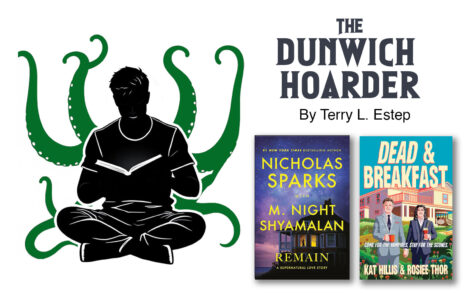Editor’s Notes: Columbus Day’s long voyage

(Editor's Notes by Christina Myer - Photo Illustration - MetroCreativeConnection)
Public officials who have fallen victim to brief, distorted and whitewashed versions of the Christopher Columbus story that appeared in mid- to late-19th Century elementary school history textbooks would do well, in this era, to consider WHY there was ever a “Columbus Day” observed in the United States to begin with.
As I have noted before, scholars are in agreement that Columbus was not even the first well-funded, European white man to make it to what we got told was the “New World,” in that age of empire and exploration. But for many of us, myself included, the narrative we were taught was that he “discovered America.”
In truth, native populations had been on this continent for tens of thousands of years. Their ancestors discovered and populated these land masses. Lief Erikson and other Vikings beat Columbus to what became North America by centuries. Polynesians likely had contact with those in what became South America a couple of hundred years before Columbus stumbled upon what he mistakenly believed to have been Asia — because he got his calculations wrong.
We owe the name “America” to the person who did discover something — Columbus’s mistake. Columbus, himself, never knew he was wrong (and actually in what became the Bahamas). But Amerigo Vespucci figured it out in 1507.
As far as what became the mainland United States of America, Juan Ponce de Leon was the first confirmed European to land, in Florida in 1513. He, like Columbus, was sailing under the SPANISH flag.
Columbus was from the Republic of Genoa — an agent for wealthy Genoese business families, who married into an influential Portuguese family. After his plan fell through to get support from the Portuguese royal family for an expedition to find the best route to Asia, he turned to King Ferdinand and Queen Isabella in Spain.
The Republic of Genoa was absorbed by another kingdom in the early 19th Century, which in turn eventually became part of the Kingdom of Italy in 1861. It was only a few years after that Italian immigrants to the United States — particularly in New York City — began to claim the Columbus narrative as part of their effort to fight back against xenophobia with a healthy dose of heritage and pride.
Hatred against Italians, who were relative newcomers to cities filled with families of more northern European stock, was rampant. In 1892, 11 Italian immigrants were lynched by an angry mob in New Orleans, so President Benjamin Harrison declared a one-time Columbus Day celebration to help ease tensions.
Through two World Wars, American politicians kept having to proclaim Columbus Day observations to combat some citizens’ wariness of Italians — especially after nearly 2,000 Italians were interned here as “enemy aliens” at the start of World War II. So, President Franklin D. Roosevelt used Columbus Day that year to remove the “enemy aliens” designation.
The day did not become an actual federal holiday until 1971.
Meanwhile, there were deeper desires to teach ALL of our country’s history, and greater empowerment of native groups who were finding their voice led to a better understanding of the wide variety of human beings who do and have inhabited this land; and just how much had been missing from the basic history education that generations received. People began to celebrate Indigenous Peoples Day, rather than Columbus Day.
In fact, in 2023, Pittsburgh City Council voted to replace Columbus Day with Indigenous Peoples’ Day on the city calendar.
“This day reminds the public that Native peoples are not relics of the past. We are living nations with diverse governments, languages and cultures that continue to shape this land,” CC Hovie, spokesperson for the Maryland-based Association on American Indian Affairs, told the Pittsburgh Post-Gazette for a story published Oct. 9.
There is, of course, pushback to some of the changes that could accompany such a declaration, from organizations such as the Italian Sons and Daughters of America. And of course, they have every right to want to celebrate their heritage, which was passed down through families with roots in what is now Italy.
Families and communities all over this country, with roots in cultures that were nurtured in every other country on the planet, have the right to do the same. That kind of pride should not be confused with celebration of a series of mistakes that led to centuries of horrific suffering for and the attempted erasure of another group of humans, then got mislabeled and eventually exploited by those who wanted to make it first a declaration and then an order.
But call Monday Columbus Day if you want to. Call it Indigenous People’s Day if you want to. Call it just plain Monday. You are an American. You are free to think about it and call it what you wish, and no one has the right to order you to do differently.
Christina Myer is executive editor of The Parkersburg News and Sentinel. She can be reached via e-mail at cmyer@newsandsentinel.com.






